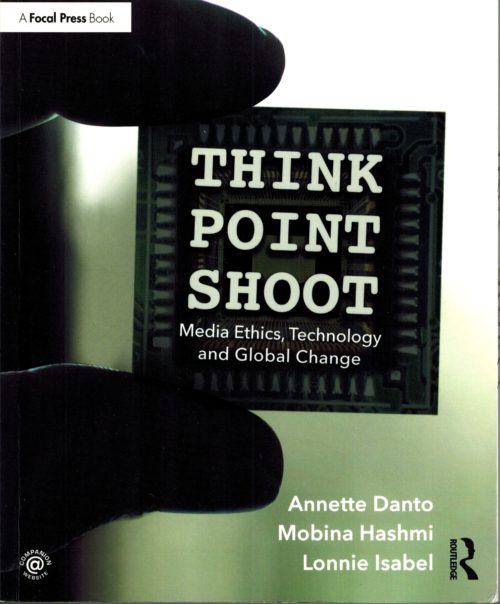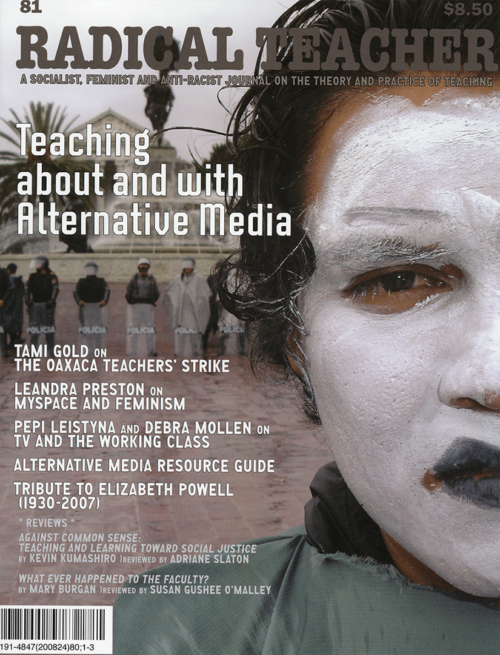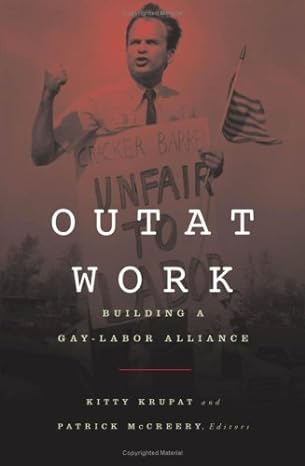
Chapter Four – F-Stop: Power Differentials
Abstract:
Power differentials can significantly impact all forms of media creation: fiction, documentary, journalism, and social media. This chapter explores power differentials in the relationship between the filmmaker and the people portrayed in documentaries. It looks at the principles of personal presentation, agency, equality, and power. I am using my experiences as a filmmaker to look at the ethics of consent, working with teenagers, screening rough-cuts, and the economic relationship between the filmmaker and the people in the films.

Chapter Thirteen – Copyright and the Right to Copy
Abstract:
For the general public as well as individual artists, there are many questions about copyright law, individual rights of ownership, and fair use. Copyright is a legal term with ethical implications. We are looking at copyright through an ethical lens. Discussions with two copyright lawyers highlight the legal and ethical dimensions of copyright law and fair use.
Copyright law imposes legal obligations. As media makers, we want our work to have the broadest exposure and largest audiences. Adhering to copyright laws is a way of ensuring this.
Media makers wear many hats—that of artist, poet, activist, and also that of someone who understands legal and ethical considerations. Copyright laws are rules that protect our own work as well as the work of others. These laws protect intellectual and creative property produced by writers of short stories, musicians, photographers, graphic artists, filmmakers, novelists. We want to encourage you to understand and respect the principles expressed in these laws.
Legal questions and concerns are geographically specific, so it is important to supplement the core ideas we discuss here with research pertaining to the country in which you are working. For example, U.S. citizens traveling outside of the U.S. and U.S. media producers distributing their work outside the U.S., need to understand they are subject to that country’s laws; not those of the U.S. In terms of ethics, however, treating others respectfully is universal and not determined by geography.

A Rainbow in the Midst of a Hurricane: Alternative Media and the Popular Struggle in Oaxaca, Mexico
Excerpt:
“Alternative Media” has meant different things to me since I was first introduced to it in the New York Newsreel Film Collective of the 1970s. Back in the day it was a way to scream, to vent in opposition to the political policies of my government (the United States) in Guatemala, Vietnam, and Puerto Rico. Then came the birth of public access television where the means of production were turned over to everyday people concerned with community issues. As a result of this development a new generation of media makers, learning how to produce talk shows and activate needed debate, was born. With the evolution of small format video (hi 8, mini DV), alternative media found its mission within grassroots movements, sometimes incorporating a personal voice. Today it has new potential powers with broad visibility through theatrical distribution, web streaming, and You Tube. Throughout all these stages alternative media has had a dramatic impact on teaching in the classroom. At the same time people were able to see video work with radical content in church basements, living rooms, temples, community centers, town squares, and home computers, expanding the notion of education and taking it beyond the classroom. During the summer of 2006 in Oaxaca, Mexico, I witnessed alternative media become an integral part of a social justice movement even to the point of taking over the dominant media structures.

Out At Work: Building a Gay-Labor Alliance
Description:
Today in thirty-nine states, employers may legally fire workers simply because they are known or thought to be gay. Clearly, the struggle against workplace discrimination based on sexual orientation has a long way to go. In Out at Work, a distinguished group of prominent gay rights activists, union leaders and members, policymakers, and academics—including U.S. Representative Barney Frank, AFL-CIO president John J. Sweeney, and rights advocate Urvashi Vaid—offers a spirited assessment of the challenges faced by lesbians, gays, and other sexual minorities on the job.
Contributors: Cathy J. Cohen, Yale U; Teresa Conrow; Lisa Duggan, NYU; William Fletcher Jr., AFL-CIO; Representative Barney Frank; Tami Gold, Hunter College; Yvette Herrera, Communication Workers of America; Desma Holcomb, UNITE; Amber Hollibaugh; Gloria Johnson, Coalition of Labor Union Women; Tamara Jones; Heidi Kooy, Exotic Dancers Union; Andrew Ross, NYU; Van Alan Sheets, Pride at Work; Nikhil Pal Singh, U of Washington; John J. Sweeney, AFL-CIO; Jeff Truesdell, Orlando Weekly; Urvashi Vaid, National Gay and Lesbian Task Force; Riki Anne Wilchins, GenderPAC; and Kent Wong, UCLA.
